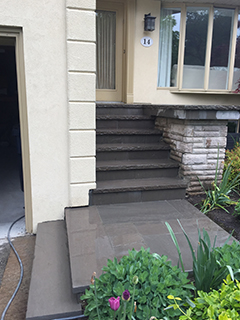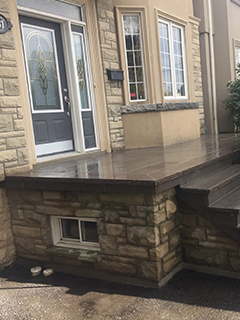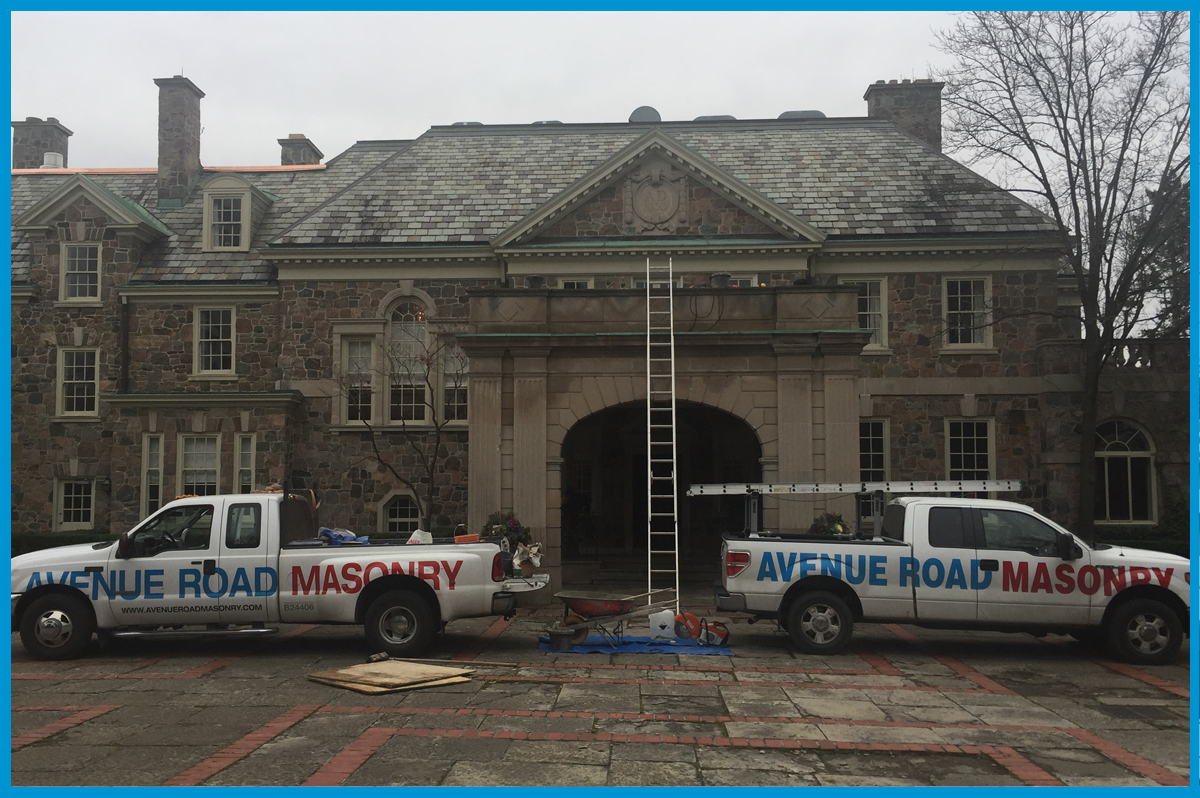What Are Different Types Of Masonry Work?
The subject of masonry work involves a craftsman’s profession which dates back many thousands of years and transcends cultures from every corner of the earth.
From the Great Wall of China to the Norman castles found throughout the British Isles, to dry stacked stone farm fencing found throughout the eastern United States, and Upper Canada; examples of the art in its various forms, is abundant throughout the world.
In the past two centuries; masonry work was required to construct the factories of the industrial revolution, and the housing stock found in every major North American city.
What was once a flourishing trade comprised of skilled craftsmen, many from Europe; that emigrated to North America at the turn of the twentieth century, has diminished to a relative handful of qualified tradesmen in our modern cities of today.
While there are specialists who today are skilled in particular elements of masonry, like brick/block laying, flagstone /paver installers, stone masons, tuck-pointers, etc., the trade has become more specialized as modern construction demands for particular masonry work elements; has taken over what was once the domain of craftsmen that encompassed all types of masonry work.
Types of Masonry Work:
Masonry Work involves all of the following skills:
- Laying bricks and blocks
- Chimney building and repairs
- Tuck-pointing deteriorated mortar joints and replacing shaled, or porous bricks (restoration)
- Laying stone with mortar, or dry stacking
- Pouring footings, columns, support pads
- Cement repairs
- Cement coatings
- Restorative water-proofing of a block, stone, or poured concrete foundations
- Erecting stone or brick walls, retaining walls, columns, decorative or functional structures.
- Installation of veneer stone, or faux stone finishes
- Concrete parging using lathes and special mortar mixes
- Installing /restoring decorative limestone, or natural stone pediments, and architectural details such as sills, copings, and gargoyles.
- Installation of flagstone or quarried stone paths, walkways, patios, outdoor barbecues, fire pits, and stairs
- Poured concrete stairs and walkways
- Concrete or stone driveways
- Heritage restoration involves sourcing or re-creating original materials and designs, including colour matching mortars
This extensive list of masonry work conjures up the notion that each specific type of work described, requires intricate knowledge of what each function requires, and further involves an investment of time and practice, to create superior resulting products.
The fact is that there is a shortage of skilled masons throughout North America. The work is physically demanding. Skill sets for masonry work require that tradespersons be certified to work at heights, must be skilled in the erection and use of scaffolding, hoisting, and rigging, and have superior mathematical skills.
People engaged in masonry work require a keen eye to replicate symmetry in structures, particularly when working with natural materials which are typically non-uniform in size or shape. A thorough understanding of the building structure, and building code requirements is imperative. Carpentry skills are required for the purpose of creating forms. Knowledge of structural steel is required when installing lintels for support in areas such as doors, windows, and building openings which must bear weight from the structure above.
With all of those fundamental skills, the mason requires years of practice to perfect their craft. Much of the work relies on an experienced hand which can chisel, or forms a piece of stone or limestone; much in the way, a sculptor would mold a piece of clay.
The reward in masonry work comes from the finished product; which in the case of restoration work; looks like the repaired area has always been there. In the case of new, or replacement work; the design results in a flawless, and uniform texture and appearance of the materials.
It has been said that it takes 10,000 hours to become an expert in most fields of work. In masonry work, depending on the degree that which one chooses to learn the various elements involved; an apprentice can easily require five to seven years to achieve proper training and practice.
When one considers the cost of performing masonry work to a superior standard; one truly gets what they pay for.
Although the work is hard, a skilled mason makes the work look easy. A skilled mason has the ability to earn an exceptional living based on the degree of skill that they may have. Still in North America; few young people are flocking to the trade.
Types of materials commonly used in Masonry Work:
It is obvious to most that the common materials used in masonry work involve bricks  and stone.
and stone.
What is not so commonly known are the varying characteristics of different types of materials.
For example; many of the bricks used in the early 1900s; which have been commonly used throughout Canada and the eastern United States are no longer manufactured. John Price brick refers to a common red, fired clay brick that is no longer produced. Although a close alternative has recently been re-introduced, they do not precisely replicate the original colour and texture. Therefore; undertaking a restoration project, sourcing reclaimed bricks that are historically correct, could take some effort and represent a premium material cost due to the nature of sourcing, cleaning, and shipping such products to the site.
Concrete bricks were commonly used in housing built in the sixties and early seventies. Many of those bricks, by nature of being concrete; have become porous relative to clay brick, and do not provide the longevity of clay bricks generally. Such bricks were used as a less expensive building material characteristic of the time period.
Quarried natural stone, has been utilized in more recent times as a finished veneer, and is also found on character homes, or to replicate the look of older stone farmhouses, characteristic of the 1800s.
It is common to find stone rubble foundations on century homes throughout North America. Waterproofing these types of foundations requires particular care and methodology relative to more modern block construction, or poured concrete foundations.
What was once considered old, is now new again.
There is a trend toward using natural materials such as stone; because of the rich appearance, the fact that such materials do not off-gas, and are fully recyclable.
Many upscale home builders are incorporating the craftsman style into their designs, so using stone as a visual anchor point on the lower portion of a home, mated to natural-looking siding materials, is becoming common in the eastern part of the country.
Modern architecture can also work well with the use of natural stone materials. Such stonework may be cut to provide a more uniform visual appearance.
Provinces like Ontario are rich with such natural stone materials. Areas like Owen Sound, Sudbury, and Severn; are examples of different regions of the province, where various colours and textures of stone can be sourced at a reasonable cost, and which represent elements of local heritage. Such materials are easily accessed, beautiful, and easy to cut.
Much of masonry work today centres on the restoration of one sort or another. Materials for such work can include products that are required to water-proof or damp-proof a natural element material like clay bricks, stone, or concrete.
Waterproofing of a foundation requires the use of specific bituminous products and membranes to prevent water intrusion.
The mortar required for blending repair areas into existing exterior masonry surfaces involves tinting to create a seamless appearance.
Concrete used for footings and foundations must be correctly mixed to the right PSI and composition to prevent cracking and to be strong enough to endure the load requirements of the building.
All of this knowledge and experience-based skills fall under the domain of the skilled mason.
To learn more; give us a call today at 416-785-5129 or contact AVENUE ROAD MASONRY to request a no-obligation consultation.

